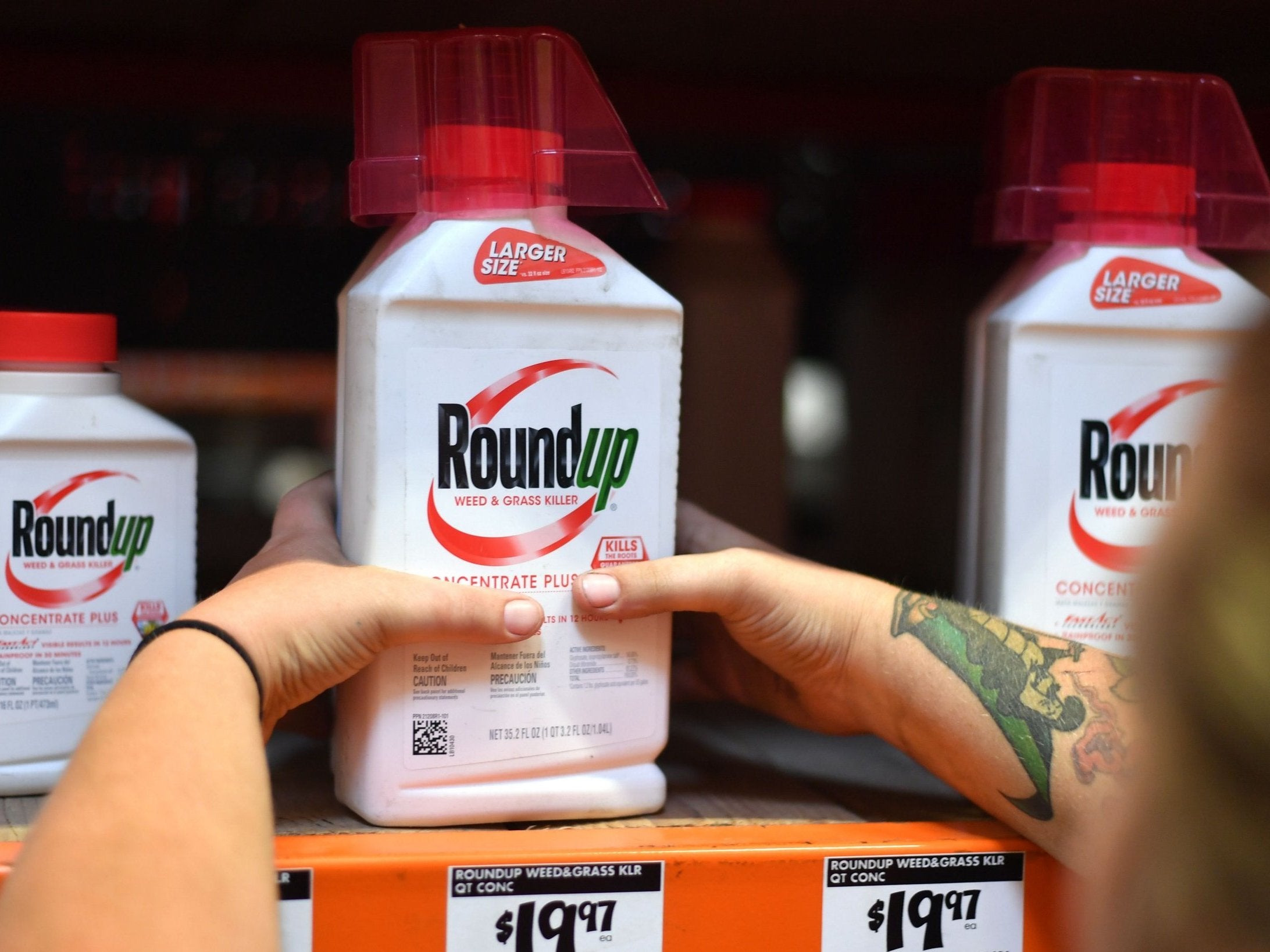Weedkiller lawsuits: Is Bayer inching towards settlement?
The chemical giant denies its herbicide Glyphosate causes cancer but more than 13,000 lawsuits have been filed in the US and it is appealing three big verdicts against it

Is Bayer inching towards resolving a string of multi million dollar lawsuits linked to glyphosate, the widely used herbicide that the World Health Organisation has listed as a “probable” cause of cancer?
The German giant has endured nothing but headaches since the $63bn (£50bn) acquisition of Monsanto, the American biotech company, last year.
More than 13,000 lawsuits are pending in the US, with plaintiffs claiming a link between its weedkillers and their cancers, something the company vehemently denies.
Three of them have, however, produced verdicts against it, the most recent amounting to $2bn in favour of a California couple.
They are all being appealed, but the case is eerily reminiscent of the way tobacco litigation went. Even if those three cases are reversed, it might only take one exhausting all the appeals in favour of a plaintiff for the floodgates to burst.
Since March, Bayer’s stock has declined by 20 per cent and the company is also now grappling with the presence of activist investor Elliott Advisers on its shareholder register.
But the company was moving in a positive direction on the markets today in the wake of the group's announcement that it has hired an external lawyer to advise its supervisory board and set up a committee to help resolve the issue.
This drew a positive response from investors, who have been looking at the process with alarm and want the issue dealt with before the damage gets worse.
Monsanto fought tooth and nail to defend glyphosate before its acquisition by Bayer. It is now off patent but still generates handsome returns through the sale of seeds for crops with resistance to the chemical.
Last year I revealed the results of an investigation into questionable PR tactics used to defend it across Europe. Alleged attempts to manipulate the science, the media and regulatory agencies, played a role in the eye popping size of the latest verdict in the US.
But the tide is inexorably turning against it. The EU narrowly voted to allow its continued use in 2017, but France has talked about banning it and Chancellor Angela Merkel yesterday opined that German farmers would eventually stop using it. Austria is also moving in the direction of a ban while scientists have reported an increasing number of plant species showing resistance to it.
Bayer is now pumping billions of Euros into developing alternatives, partly as a result of the fallout from the Roundup controversy, but partly because its usefulness might be on the wane.
One would hope that the beating it has been taking would serve as a lesson to tread carefully with what emerges from this process. But one of the points made in the US court cases is that the chemical was, and is, licensed for use. Perhaps regulators could also do with learning some lessons.
Join our commenting forum
Join thought-provoking conversations, follow other Independent readers and see their replies
Comments
Bookmark popover
Removed from bookmarks